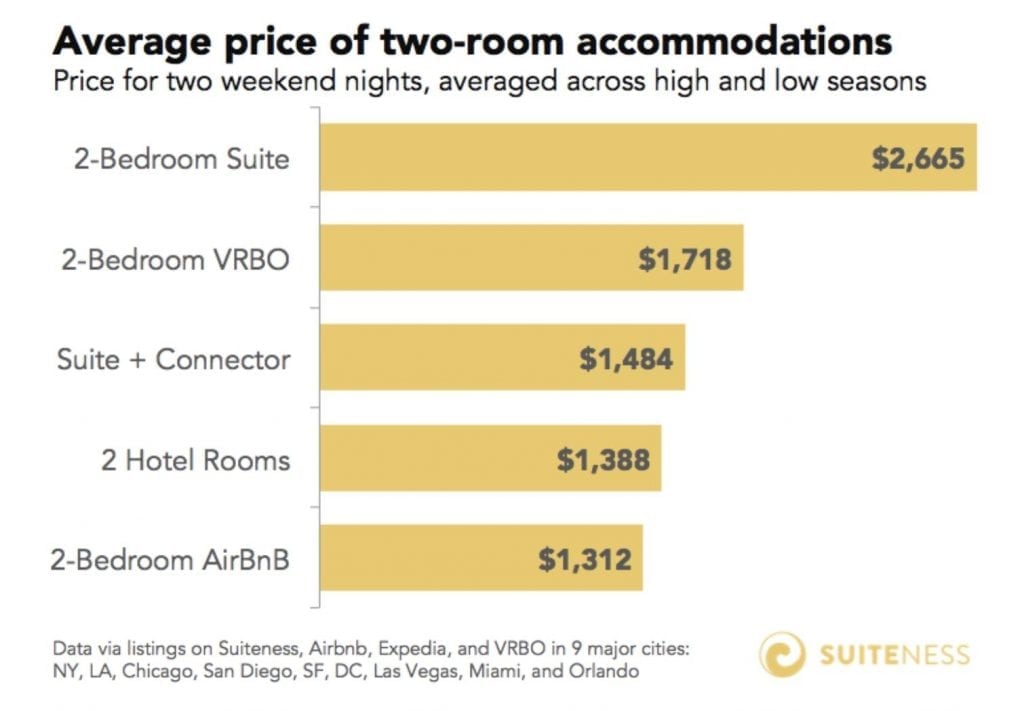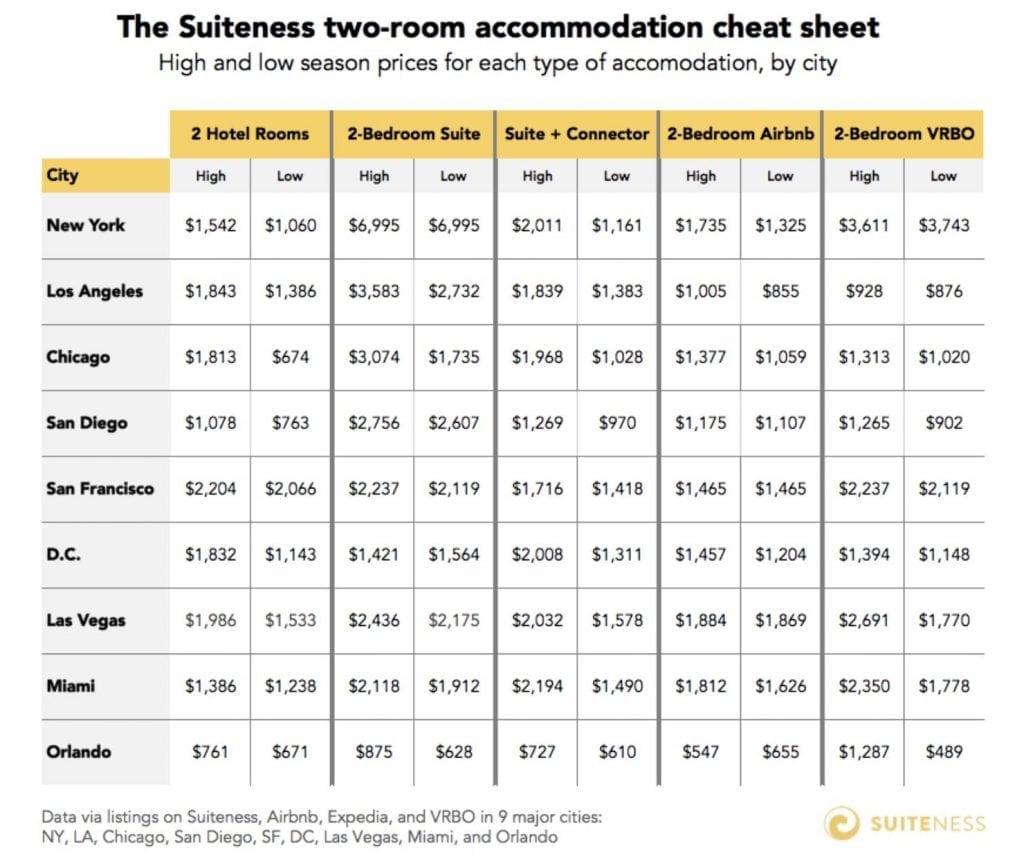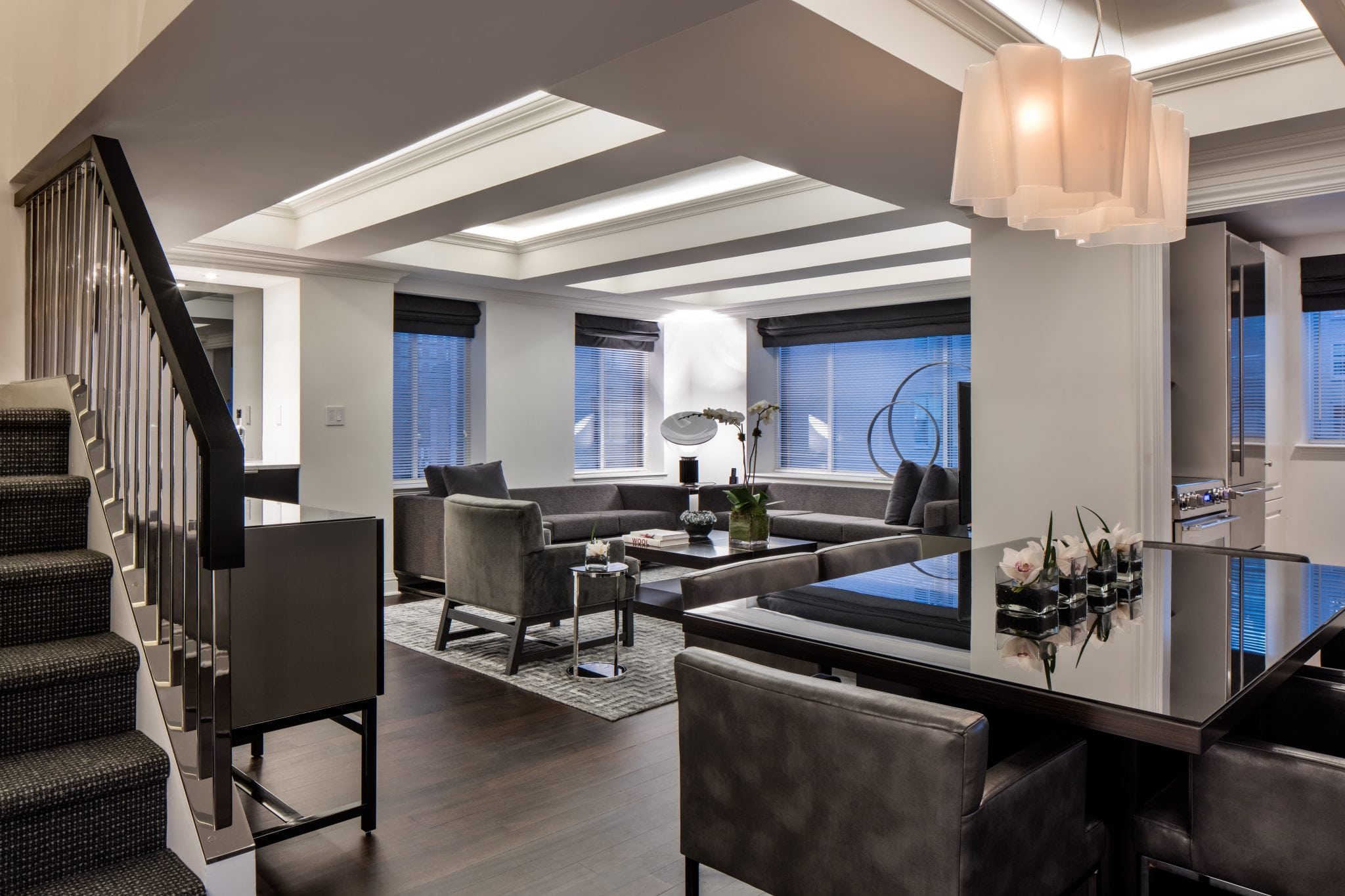Skift Take
Hotels have long underutilized their high-value inventory, which means losing out on a huge opportunity to compete with vacation rental platforms. Suiteness, a new solution to the hotel marketplace, helps guests get the space they need and helps hotels increase their average booking value.
This sponsored content was created in collaboration with a Skift partner.
The rise of vacation rental platforms like Airbnb and VRBO has revealed a desire among travelers for more space to stretch their legs, unpack their bags, travel with their friends and family, and live like a local. As traditional hotels watch these upstart competitors grab market share, too few realize that appealing to today’s traveler with “millennial tweaks” like self check-in and in-room apps is not enough. The key is to give travelers what they’re looking for — more space — by taking advantage of something they already possess: hotel suites.
The Problem with the Price of Today’s Suite Offerings
Hotels today tend to overprice their suites, which typically account for one-third of room inventory or less. With so few available, management prices them high to keep them from selling out –– but in the end, this often leaves many of them sitting empty and unused.
Hotel staff tend to offer these suites as loyalty perks to their most valued guests or concessions to disgruntled guests, thereby gifting them to travelers who may not have been looking for a suite in the first place. Meanwhile, travelers who are in fact interested in a suite may have trouble finding and booking them –– most hotel websites don’t have effective pathways for guests to discover and reserve them. This leaves suites functionally invisible and underutilized as an alternative to Airbnb or VRBO rentals.
Due to these dynamics, suite pricing is not a true reflection of supply and demand. Two-bedroom suites frequently cost four times as much as a regular single hotel room. Hotels that want to accommodate larger groups that may otherwise turn to vacation rentals can work to bring their pricing for suites to levels that can compete better with vacation rentals.
A Look Behind the Numbers
The pricing discrepancies are clear in numbers pulled from Airbnb, VRBO, and Suiteness, a suite-focused online booking platform offering single and multi-bedroom hotel suites.
A key piece of information in these comparisons is the fact that there are two distinct types of hotel suites, which tend to be priced very differently. The first type is a traditional suite, in which there is one entrance door that leads into a living area, off of which are bedrooms (usually two), in a home-like arrangement. The second type, called a connecting suite, is a bit more utilitarian — a traditional suite with a living room and one attached bedroom that connects directly to one or two standard hotel rooms, which each also has a door to the living room.
Connector suites tend to cost nearly half the price of traditional two-bedroom suites — $1,484 versus $2,665 for two weekend nights, respectively, as averaged across nine major U.S. cities, according to data from Suiteness. They’re also much closer to the cost of a two-bedroom Airbnb ($1,312) or VRBO ($1,717) property, and could directly compete with those options. Traditional suites tend to be far more expensive than any other option.

Are Connector Hotel Suites Competitive Everywhere?
Analyzing the data from these nine cities reveals that this pattern holds true across the United States. For example, in New York, Orlando, and Las Vegas respectively, a two-bedroom suite for two weekend nights in high season averages $6,995, $875, and $2,436, respectively. In those same cities, a connector suite averages $2,011, $727, and $2,032, while an Airbnb averages $1,735, $547, and $1,884.
In all cities surveyed, Airbnb is the cheapest option aside from simply renting two separate hotel rooms, followed by connector suites. However, Airbnb rentals may have additional fees that will boost the price upon booking, such as cleaning fees, fees per additional guests over a certain limit, and Airbnb service fees. Additionally, the price of hotel suites includes amenities that Airbnb rentals typically don’t offer, such as a concierge, room service, on-call maintenance, and daily housekeeping. Hotels may also be more central and transit-accessible than Airbnb rentals at similar price points.

Hotels have a real opportunity to take advantage of inventory they already possess. First, they must improve traditional suites’ pricing consistency and discoverability. Next, they must communicate to travelers looking for extra space that connector suites are not only ideal, but competitively priced. Hotels that want to achieve both of these things have a simple solution: work with Suiteness. Once these are checked off, hotels will soon be welcoming more groups who value both space and service.
This content was created collaboratively by Suiteness and Skift’s branded content studio, SkiftX.
Have a confidential tip for Skift? Get in touch
Tags: hotels, vacation rentals
